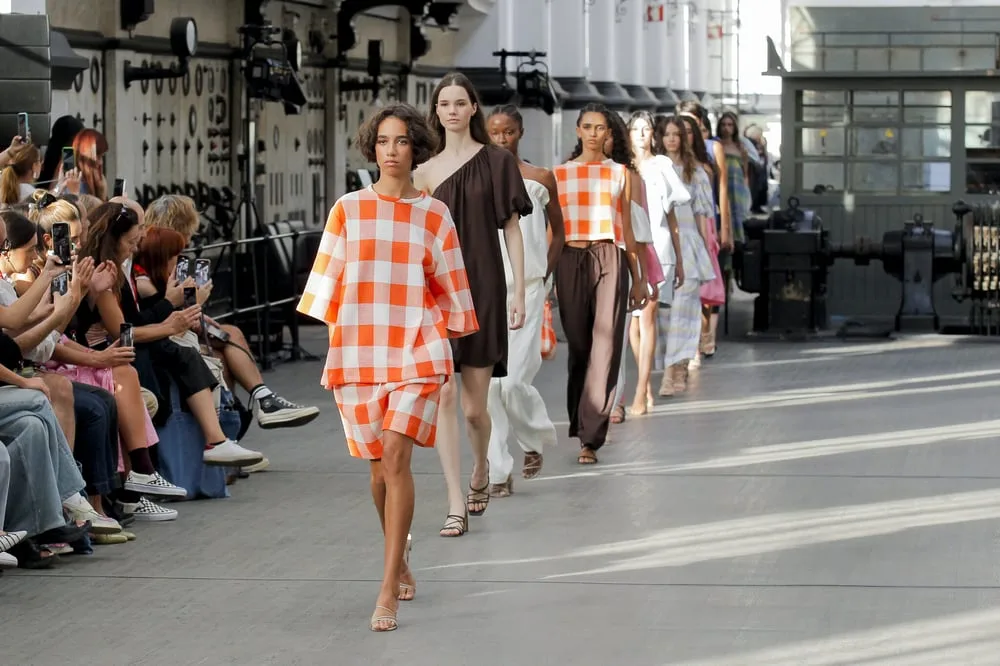When it comes to iconic symbols of Portuguese urbanism, the tram stands tall. The 53rd edition of Portugal Fashion unfolded against the picturesque backdrop of Porto, at the Museo do Carro Eléctrico, the Tram Museum, from October 10 to 14. Portugal Fashion is not just a series of dazzling runway shows and exhibitions; it’s a dedicated effort to connect the three pillars of the fashion industry: design, production, and distribution, with a strong focus on «Made in Portugal.»
Mónica Neto, the director of Portugal Fashion, emphasized, «We have a robust industry and a strategically advantageous geographical location. We’ve made significant strides in sustainability, with many brands choosing to produce in Portugal. We provide a solid platform for uniting design and industry.»
In its 53rd edition, Porto’s Fashion Week offered more than just fashion shows. It included factory visits to the textile production hub around the city, a showroom for presenting designs to national and international buyers, and visits to industry leaders, such as the creative offices of Farfetch. These activities showcased Portugal’s growing influence in the global fashion industry while staying deeply rooted in its local landscape.
Neto also highlighted the role of Portugal Fashion in helping designers expand globally, including attending international fashion events. Portugal Fashion has an agreement with the French trade fair Tranoï, a key event on the Parisian fashion calendar.
From emerging talents to partnerships with African fashion, Portugal Fashion’s runway was diverse. It featured emerging brands, renowned Portuguese labels, and international talents who’ve chosen Porto as their base, like David Catalán, Víctor Huarte, and South African designer Judy Sanderson.
Portugal’s focus on sustainability in production sets it apart from its counterparts. Portuguese production meets the certification requirements demanded by retailers like Zalando, making it a pioneer in the field.
Porto’s Fashion Week also hosted the «Powered by Canex» program, sponsored by the Afreximbank to promote African fashion in Europe. The program focuses on storytelling, production capacity, and market access, with an agreement with Tranoï playing a crucial role.
Despite facing bureaucratic challenges, Portugal Fashion remains a pivotal gathering point for Portuguese and international fashion, embodying creativity, industry, business, and cultural connections.
